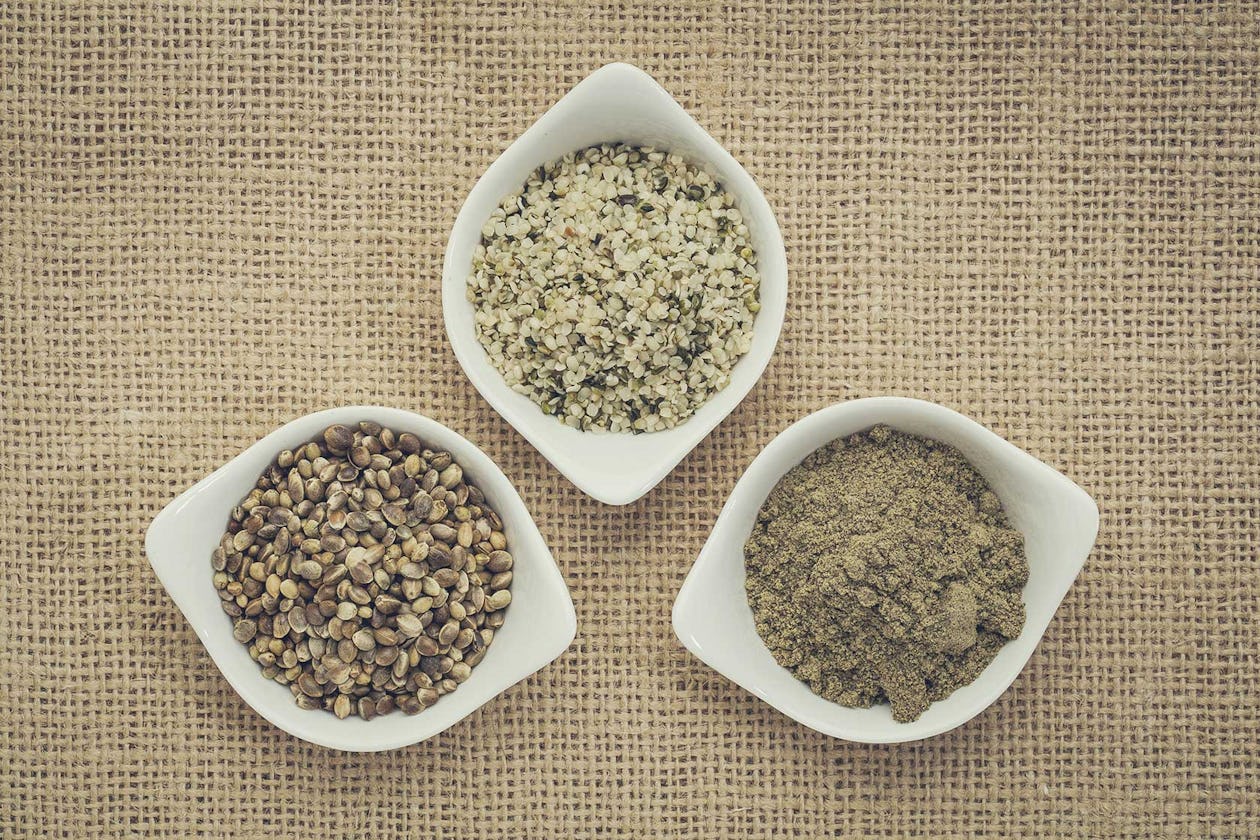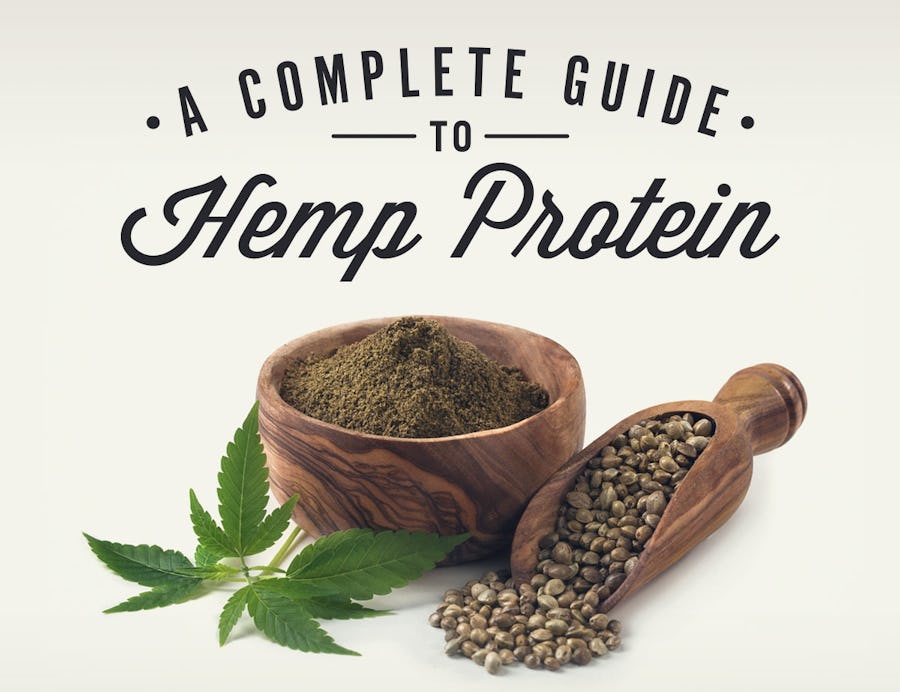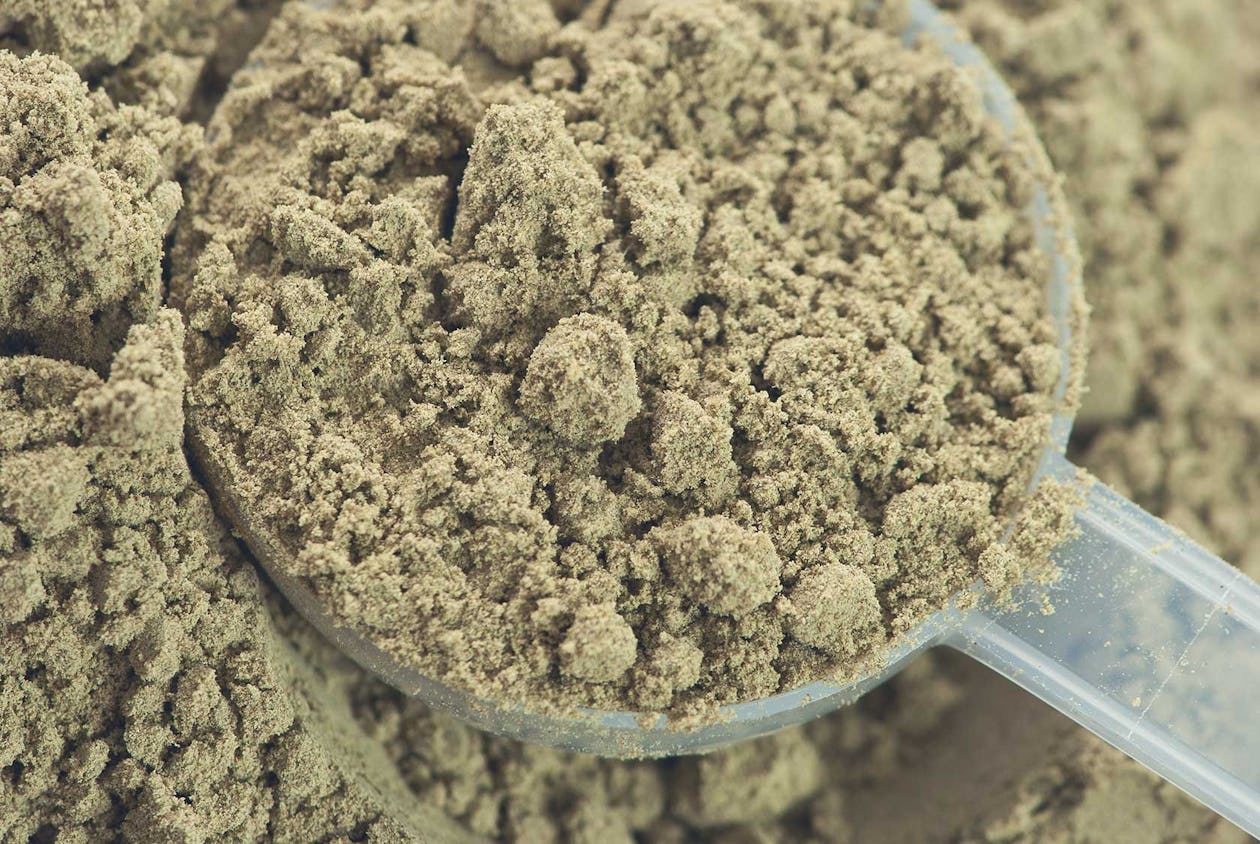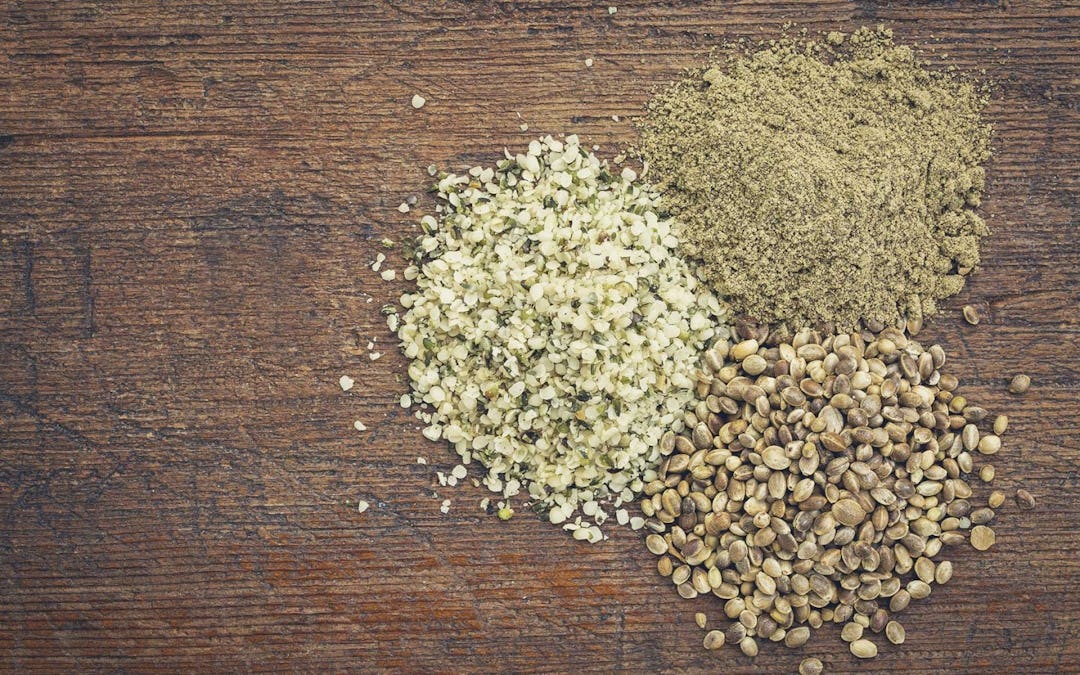Protein supplements don’t have to come from a cow to be effective. While whey protein gets all the glory, the protein in hemp—one of the most versatile plants on earth—offers a high-quality, eco-friendly source that can support muscle gain, fat loss, and peak performance.
If you still think of hemp as a banned substance, it’s time you discovered the many ways this plant’s protein can help you reach your goals—legally and safely.
What is Hemp Protein?

Hemp is part of the species Cannabis sativa, which also includes marijuana, but it’s important to understand that they’re two distinct plants.
Hemp is a miracle crop that has been grown for thousands of years for a wide array of medicinal and industrial uses.
It can be refined into paper, clothing, biodegradable plastics, paint, insulation, biofuel, animal feed, food, and many other things.
The hemp plants that are permitted to grow these days are bred to have less than 0.3% THC, an amount so little that they have no psychoactive effect when ingested. Read: hemp will NOT get you high.
To make hemp protein, oil is extracted from hemp seeds and the remaining seed meal is processed into powder.
A typical 30-gram serving of hemp protein powder will provide 12–15 grams protein.
Is Hemp Illegal?
The Controlled Substances Act of 1970 unfairly classified all forms of cannabis as a drug, making it illegal to grow. However, it was still legal to import hemp products as long as they had ultra-low levels of THC.
The Agricultural Act of 2014 gave power to the states to grow hemp again for research programs, and follow-up legislation has done more to remove the stigma.
Today, more than 30 states have begun raising hemp for research, industrial, or commercial purposes. However, commercial production of hemp remains illegal at the federal level.
What Are the Health Benefits of Hemp Protein?

In addition to its protein content alone, hemp protein powders often include two other components that support great health.
Fiber
Hemp contains both soluble and insoluble fiber, and most of its protein products contain around 10 grams per serving—almost half of the FDA’s 25-gram Recommended Daily Value (for those following a standard 2,000-calorie diet).
The soluble fiber in hemp protein is a source of beneficial digestive bacteria that has been shown to help regulate blood sugar. The insoluble fiber assists the body in passing waste through your intestinal tract.
Fiber is also filling, making hemp protein an excellent choice for use in a meal-replacement shake. In this regard, it may be a better choice than whey protein, which offers virtually no fiber.
Healthy Fats

Hemp protein often offers three grams of fat per serving, coming from omega-3 and omega-6 fatty acids, which have been found to support heart health. Omega-3s are hard to come by in non-fish sources, and hemp’s high stearidonic acid content (a type of omega-3) makes it a good alternative for those who don’t eat fish.
How Does Hemp Protein Powder Compare to Other Proteins?
Hemp’s protein is highly digestible. A Journal of Agricultural and Food Chemistry study found that when hempseeds are hulled prior to removing their oil, the protein absorption rate is comparable to casein (a popular dairy protein supplement). The researchers concluded that the digestibility of hemp protein is equal to or greater than various other grains, nuts, and seeds.
Although hemp’s protein contains all nine essential amino acids, it has particularly low levels of a few of them—including lysine and leucine—and is therefore not considered a complete protein like animal food products are. Nevertheless, Finnish research has shown hemp to be high in arginine and tyrosine. The former has been shown in some studies to boost blood flow and the latter to support cognition under stressful conditions.
Hemp is a great protein choice for those following a plant-based diet. It’s higher in most amino acids than rice protein and doesn’t contain the trypsin inhibitors that are common in soy protein powders—compounds that hinder protein digestion in the stomach and small intestine. When combined with small amounts of pea and rice protein, hemp’s amino count can be improved.
Will Hemp Protein Raise My Estrogen Levels?
Soy protein—probably the most popular non-dairy protein supplement—often comes under fire for its isoflavones. These compounds have been rumored to raise estrogen levels (although research hasn’t confirmed it). However, hemp protein has not been shown to have any effect on estrogen, or a negative effect on testosterone.
Could Hemp Protein Make Me Fail A Drug Test?
As mentioned above, the THC content of all commercially-available hemp products is so low they won’t do anything to satisfy your friendly neighborhood stoner. Nevertheless, there is a slight possibility that some THC could turn up in your urine, and you might be red flagged for it. But research has shown that it’s very unlikely. A study from the Journal of Analytical Toxicology found that hemp foods did not cause subjects to fail required workplace drug tests.
How Can I Incorporate Hemp Protein into My Diet?
Making protein shakes is the most common way to consume hemp protein. Beyond shakes, there are dozens of ways to add hemp protein to your diet. You could easily mix it into juice or your favorite beverage. A chocolate-flavored batch can be added to your morning oatmeal, or you can blend the powder into yogurt, fruit, or a coconut curry. Hemp protein can also be used as a replacement for flour in baking recipes—you can make protein bars and high-protein pancakes, muffins, and breads with it. (Don’t worry; heat won’t damage the protein.)



)





